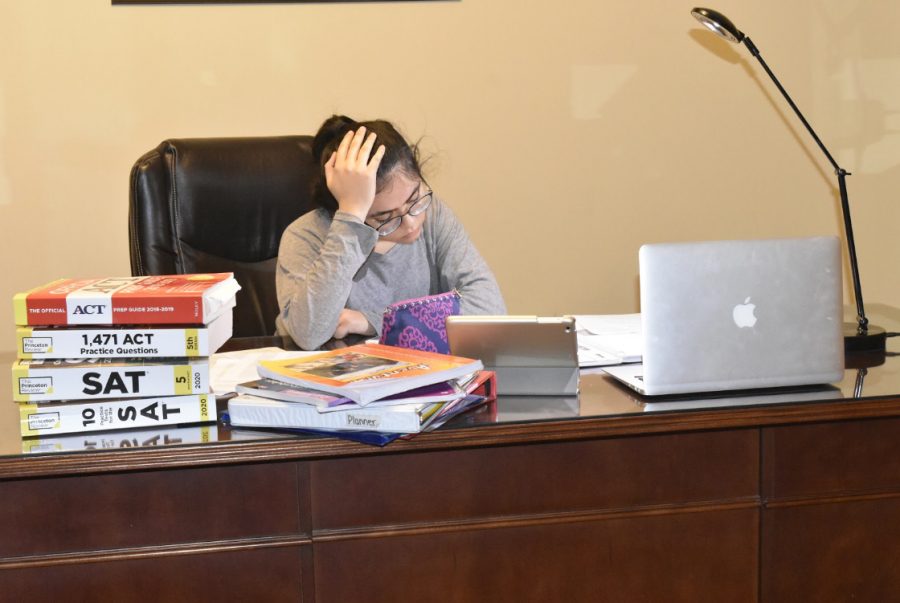Should students be given mental health days off?
Junior Chari Gilbert rushes to her next class as she mentally makes a list of everything that she has to do: help out at home, volunteer at her local soup kitchen, keep her commitments to her many clubs, somehow manage to do her homework, and study for her many tests the next day.
Gilbert’s story is all too familiar to many other students at Mercy who struggle to find balance between completing school work and finding time to destress for the sake of their mental health.
“High school is stressful and a difficult place,” said Gilbert. “The stress of getting into college and trying to balance clubs and sports is sometimes too much. I’m in 11 clubs and extracurriculars in school and out of school, so I don’t have a lot of free time or get much sleep.”
In the midst of rising rates of depression, anxiety, and suicide among high schoolers, some state school systems are now starting to allow students to take mental health sick days off from school.
Lawmakers in Oregon and Utah have recognized the importance of students’ mental health and have decided to allow them to take sick days just for their mental health.
Suicidal thoughts among teens ages 18 or 19 increased 46 percent from 2008 to 2017, and suicide attempts have doubled. According to the Center for Disease Control and Prevention, the rate of suicide increased by 56 percent from 2007 to 2017 among ages 10 to 24. In fact, suicide has become the second most common cause of death among teens and young adults.
Allowing students to take mental health sick days could help parents and counselors take notice and spark conversations. Mercy High School’s attendance policy states that after 10 class or daily absences, a student has exceeded the allotted absences for the semester. The more absences the student takes after that results in a percentage or points being deducted from the final grade.
“The policy is still relatively new and is not necessarily being followed up on this school year,” said Mrs. Trish Brown, chair of Mercy’s Counseling Dept. “Mrs. Tarplin always consults with Counseling before issuing any penalties or sanctions.”
Although Mercy currently does not have a specific policy stating that students can take a mental health day, students do not have to provide a reason as to why they are not coming to school as long as a parent or guardian confirms their absence.
Some parents worry that students may try to get out of school and claim their absences as mental sick days without thinking that there are consequences. But Mrs. Brown said she thinks few students would abuse the policy that way.
“If a school put out there that they are in support of students’ mental health and are willing to accommodate them to their needs, then how can parents argue with that?” said Mrs. Brown. “This policy would break down the barrier of stigma that mental health has and allow students, parents, and staff members to open up to the conversation of mental health among our students.”

